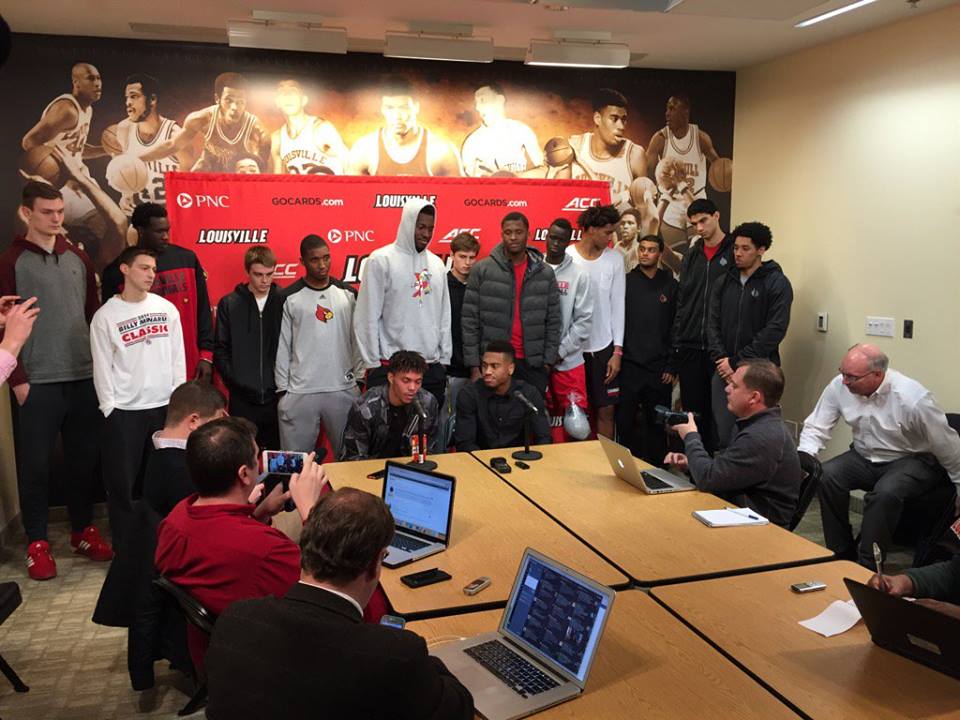|
The CEO at Charles Schwab in a recent interview shared about one of his failures in college. In one of his last classes, he spent hours memorizing formulas, calculations, and business principles, only to fail the class. The reason? The final exam was a blank sheet of paper for them to answer one question: What's the name of the lady who cleans the building? For Bettinger, this was a reminder that the most important resource in business is human, it's the people who do the work and drive the brand and build a legacy. Perhaps the biggest takeaway for ministry is the simple and profound reminder that unless we are effectively engaged in relationships, we're not doing ministry.
Unlike many other organizations, relationships are the crucible where all ministry happens. When we are prepping sermons and Bible studies, we're doing it knowing who will be hearing it. When we make a hospital visit, we're not clinicians, we're dealing with the emotional toil of tragedy. And every time in youth ministry we plan an event, we're not making a checklist, we're working with the sacred trust of parents with their kids. It's impossible to disengage from relationships and be anything more than a talking head. I love what my friend Sam Rainer said about the importance of local, relational leadership, that the leadership we have among our people is a legacy that will long outlive our obituary. Jesus made a ministry out of the Dotties, the Twelve were on the fringe of proper society without any special gifting or natural ability, yet through His leadership and the Spirit's power the world was turned upside down within a generation. Our churches and ministries are full of Dotties. They're the awkward middle schooler struggling to fit in, the unemployed dad who can't find a break, the recovering addict with an ankle bracelet, and the lady who walks in pregnant without a ring. It can be so easy in ministry to focus our time and energy on the people like us, the "safe people," the ones we spend time with and not have to wonder what people are thinking. But one of the ways we build our relationship capital in ministry is to spend time ministering to, serving, and loving the Dotties around us. Take a long look around the people God has called you to live among, serve, love, and shepherd. Are there any Dotties out there? If so, be intentional about seeking them out to give them the graceful touch of Christ who came to seek and save the lost, and who told us that whatever we do for the least of these, we're doing for Him. This is taken from the concept for my next untitled book to be released by Rainer Publishing later this year, designed to help ministry leaders get off to a good start.
1 Comment
 On August 1, 1981, the landscape of television and music forever changed: MTV launched and debuted with Video Killed The Radio Star. After that, everything changed. The music industry that had been dominated by recording studios and producers now was controlled by the artists and the fans. It led to the innovation of things like Napster (don't lie, you downloaded songs on your 56K modem!), the iPod, and streaming music. Around that same time, a whole new generation emerged: the Millennials. In time they would become more numerous than Baby Boomers (depending on the source the number is as high as 80 million), have unprecedented access to information, travel, and awareness (we were the generation that watched the OJ chase, 9/11, and who use Google as a verb), and perhaps most telling, this was the first generation to be raised in a largely post-Christian worldview. No generation like them had ever been seen before, which led to David Kinnaman describing this generation as "discontinuously different" than its predecessors. As the oldest Millennials settle into adulthood and responsibility (I was born in 1982, typically Millennials start in 1978-1984), there is an incredibly huge number of them in college or young adulthood. I'm incredibly thankful for my friend Mark Whitt who serves as LifeWay's lead collegiate strategist, and he's on the front lines of who Millennials are and how we in the church can engage them. He shared some major research from LifeWay that showed 4 markers of Millennials are saying: 1. "Get to know me" 2. "Challenge me" 3. "Serve with me" 4. "Do life with me" If we want to engage the largest, least-churched, highest-potential, and most exciting generation we've seen, I really believe we need to do 7 things. 1. We need to be intentional about relationships and authenticity. Millennials crave relationships and connectivity. That's why they're involved in social media, they're trying to find the relationships they were built for, but struggle to find it online. Also, they can spot a fake a mile away. And that's why many are disconnected from a local church. They're tired of the "fine" Christianity that puts a veneer over the reality and difficulty of life. They've seen too many leaders in the church on Friday and Saturday night that they don't want anything to do with them on Sunday. If we want to engage Millennials, we need to make sure we're building real relationships with them, getting to know them on their level in their world, and we need to make sure we're authentic in how we live. 2. We need to get over our fear of questions. Millennials are going to ask hard questions about how the Bible connects to science, history, and current events. Dismissing those questions, proof-texting, or shrugging them off isn't going to work. Remember, they carry more power on their mobile phone than NASA had at the moon landing. If you aren't willing to work to answer them, someone else will. 3. We need to embrace their diversity. Millennials look very different than previous generations. They are multi-racial, they are influenced by a number of trends, and they aren't driven by the same conventions of dress--think of how few professionals you see in line at Starbucks with a formal suit & tie. Millennials are going to come into our churches with tattoos, listening to different music, and the church of the future will not be a white middle-class church. The great news is, we need their diversity. We need people not like us who are part of our church. This wonderfully reflects 1 Corinthians 12 with the Church as Body. 4. We need to build around a cause worth dying for. One thing we see about Millennials is they want a cause bigger than themselves to live for. Millennials are the most selfish, most entitled, and wealthiest generation, but in a strange paradox they're the ones most willing and eager to serve a cause. If we want to keep our churches focused on ourselves and our preferences, we stand to lose an entire generation. But if we can rally around a cause, the mission of God to seek and save sinners from all nations, tribes, and tongues, we can unleash on the world the greatest missionary force imaginable. 5. We need to surround them with mentors. This is one of the coolest things about Millennials, and what I did the bulk of my doctoral work on, how important mentors are to Millennials. There is value in learning from those who've gone before, who have not only the knowledge but also the wisdom and experience. When we surround Millennials with a peer culture, we do them a disservice. If you're a student or college minister reading this, I want to encourage you to get people your parents' age in your ministries to serve as volunteers and mentors. Connect younger people with someone in their future work field. Engaged and young married couples need an older couple to shepherd them and love them to show what a lifetime of Gospel faithfulness looks like. 6. We need to avoid avoiding tough issues. The Gospel speaks to marriage, sexuality, divorce, genocide, racism, poverty, abortion, social issues, and the evening news. When we sanitize our faith so much that these things are never talked about from a biblical worldview, we open up the opportunity for the world and the culture to speak into those issues. Perhaps the best way to talk about these things is how one of my seminary professors, Dr. Moore, advises: with convictional kindness. When we talk about tough issues, we do so with conviction on the Bible's unending authority. But we also do so with the kindness, civility, and grace to walk slowly through these issues. Remember, this is the first post-Christian generation in America--they have been raised in a culture that has largely abandoned traditional Christian morality, so we can't be surprised when even church kids struggle with what the Bible says about some issues. The answer isn't to avoid them, it's to lovingly deal with them in a way that reflects the winsomeness of the Gospel. 7. We need to stop pretending it will be the same as before. They won't. And that's ok. We don't need to reclaim a 1950's Pleasantville if we want to see the world changed by the Gospel. The dominant role of the Church in civic affairs and everyday life is likely to be diminished. Millennials recognize that the impact of the Gospel is affected by the church being missional, living every aspect of believer's lives as an opportunity to share and shine Christ before the lost world. So we need to ask ourselves this question, and it has stuck with me since I heard Kinnaman share it years ago: Do we love our traditions more than our children? Things won't be like they were before, and we need to embrace that and recognize that Jesus has already overcome (John 16:33). Last week news resounded throughout college basketball that the University of Louisville had self-imposed a one year ban on postseason play. Instead of entering the NCAA tournament as a sleeper Final Four pick, the season will end without much fanfare on a March afternoon in Charlottesville Virginia. There have been teams who've self-imposed bans before (Syracuse basketball and Miami football most recently), but those teams lacked the potential that this year's Cardinals team did. At the center of the story were two fifth-year graduate transfers, Damion Lee & Trey Lewis. They joined the team to get the chance to hear One Shining Moment, and to hear their name called on a tournament court. And when the team heard the news, reports from the locker room focused on how crushed these two were. Because they had been named team captains and had carried themselves with class the whole season, they were made available to the media that evening. This is what that scene looked like. They were surrounded by every. single. member. of. the. team. If that's not team chemistry, I don't know what is. On what could have been a day everyone mailed it in, the entire team stood by their teammates who just had the worst day of their lives. Chemistry is so important to teams, and it can be the difference between an OK team and a great team. Who knows what this team could have done? I don't know if the program will be hit with more sanctions beyond this. But for a moment, we saw what chemistry is and how important it can be to maintain a team.
This chemistry displayed itself through friendship, unity, and trust. The players all season displayed more than a shared uniform, they shared life. They laughed together, hung out together, and truly liked each other. They were also unified, and that comes from the culture that emphasized the name on the front of the jersey rather than the back. They played hard, dug in on defense, and looked to find the open player. Lastly, they trusted each other. It's a beautiful picture to know that during your worst moment, someone has your back. The scandal may impact the program for years, but these guys did nothing wrong and proved they lived out the mantra of being a "Louisville man." Chemistry in ministry is important because ministry is personal, the body connects and intersects, and ministry is hard! These kinds of crisis moments can be a time where chemistry is forged among a team, if there is intentionality among the team to bond together as a "Band of Brothers" to get through those difficult times. Unfortunately, if there hasn't been much work done before the crisis to build a foundation for that chemistry, crisis moments can often prove divisive. So what are you doing to develop chemistry in your ministry? I dedicated an entire chapter to how important chemistry is in ministry in my book Dream Teams, available on Amazon. Pick up a copy and see if it doesn't change the way your ministry operates.  This past week I was supposed to be out of town at a conference, but we had a sick baby at home so I had to cancel my trip. I’d already gotten a substitute for our weekly Bible study, so I thought I’d change it up and be a part of being fed rather than be the one up front leading. I have to admit, it was one of the most refreshing things I’ve done in a while. One thing we can too often believe in leadership is that we have to always be the one leading, that’s just who we are. But if we don’t take time to be fed and encourage others to take the lead, we’re not doing our job as leaders—instead of leading a culture, we’re creating a dependency. Think about it for a second. If you’re the only one who ever leads, teaches, and speaks, what happens when you get the flu or another opportunity comes up? You’ve done a disservice to your ministry because you’ve not equipped others to carry the mantle for you. Our leadership is best used when it’s distributed to others. If you invest in 5 volunteers who are leading in your ministry, you’ve multiplied your leadership by 6! You can in theory do six times more than you could by yourself. If you intentionally invest in an intern or associate leader, you’ve doubled your capacity to reach the entire ministry, and you’ve set up someone else for success when God moves them (or you) to a new place of service. If you’re a leader, I want to encourage you to occasionally take a step back and let someone else have the spotlight. Of course this assumes you’ve built someone up to be in that spot! If you’ve not and you take a step back, you’ve not distributed leadership you’ve dumped it. There’s a huge difference. 1. It allows your people to hear from another voice – One thing that can happen when you’re the only voice is the Charlie Brown phenomenon. Remember the teacher’s voice in Peanuts? That’s how you can sound after time. Give them a break and let them be fed or led by someone else. 2. It gives you a chance to sit back and evaluate – When you’re up front you only get a limited perspective. But when you take a step back you can see how all the moving pieces interact and if what you’re doing is being effective. Actively listen, take notes, and don’t leave any sacred cows unturned. It also helps you to give feedback to the leader filling in for you, especially if they’re new or inexperienced. Your feedback is invaluable to them! 3. You need to be a learner – I’m convinced leaders who stop learning are leaders who can’t lead. It shows pride when you think you can’t learn something from someone else, even if they’re new or inexperienced. God still speaks through His Word, and when you sit back and let yourself learn from someone else’s perspective, you’re honoring their preparation and God’s design for you to work and rest. 4. You’re training up Kingdom workers – So many times churches assume their ministry leadership will just do the work of ministry, that they’ll basically do everything. And that’s partly true, ministry leaders should be willing to do whatever it takes, but they shouldn’t be expected to do everything. Ephesians 4 shows us that the task of ministry leadership is to equip the saints for the work of ministry. So when you’re letting others lead and helping build up people to do ministry. Do you have any success stories on stepping back and letting others succeed in leadership? |
Scott M. DouglasA blog about leadership and the lasting legacy of family ministry. Archives
August 2023
Categories
All
|

 RSS Feed
RSS Feed



